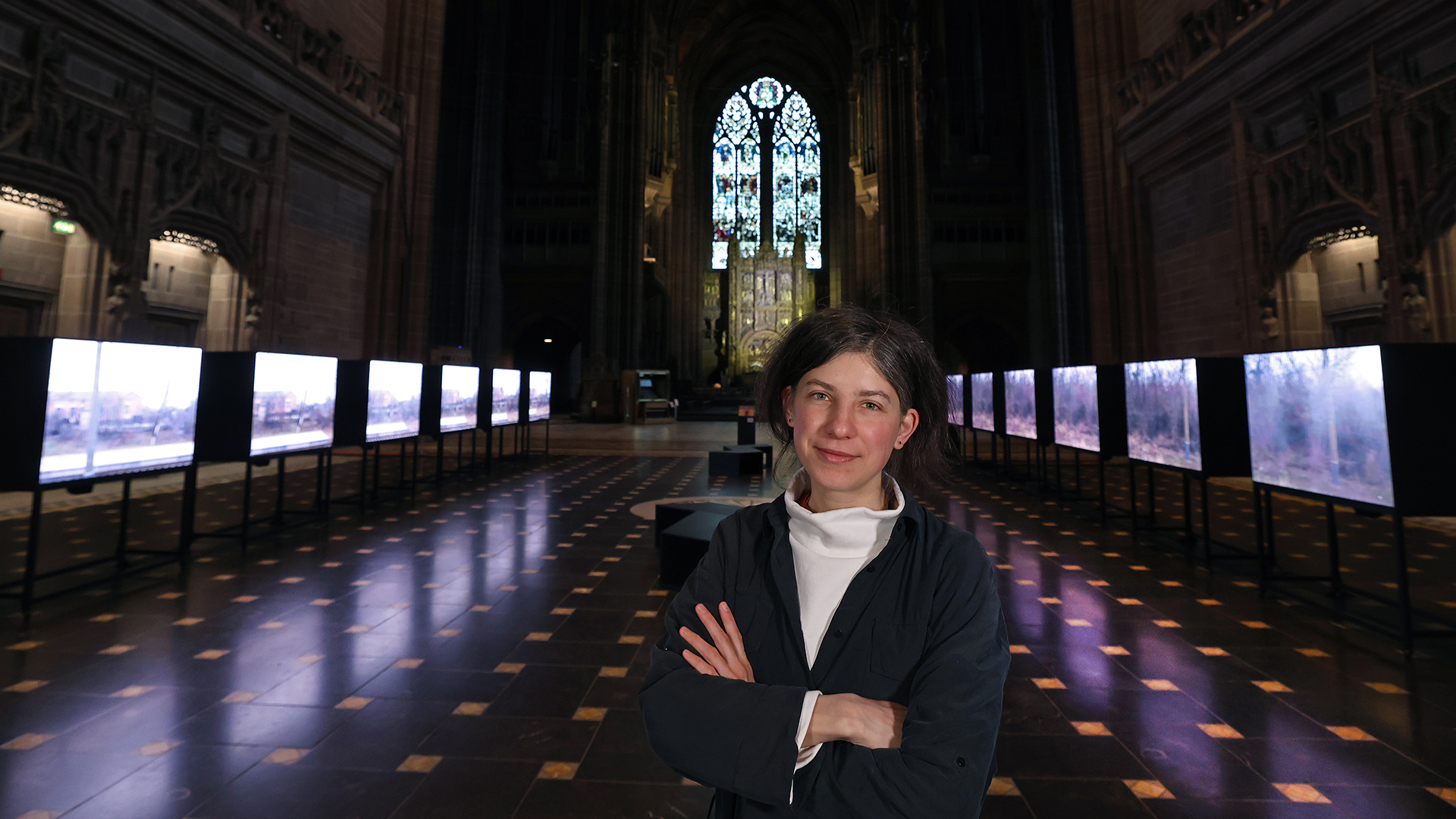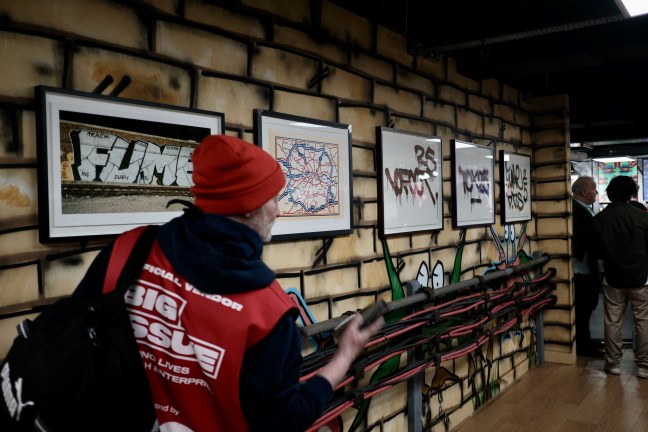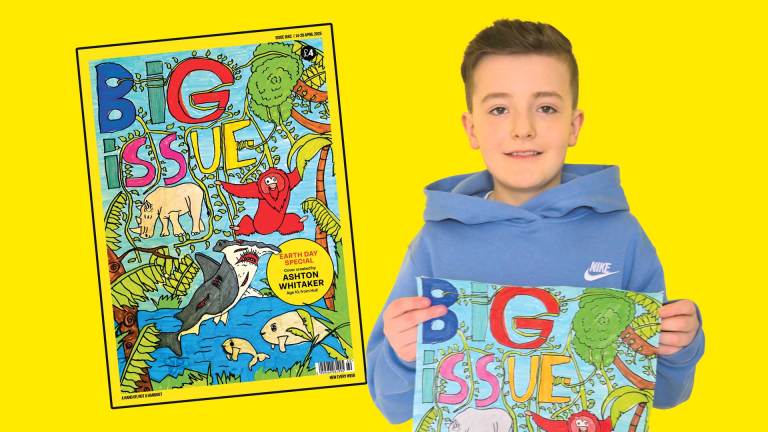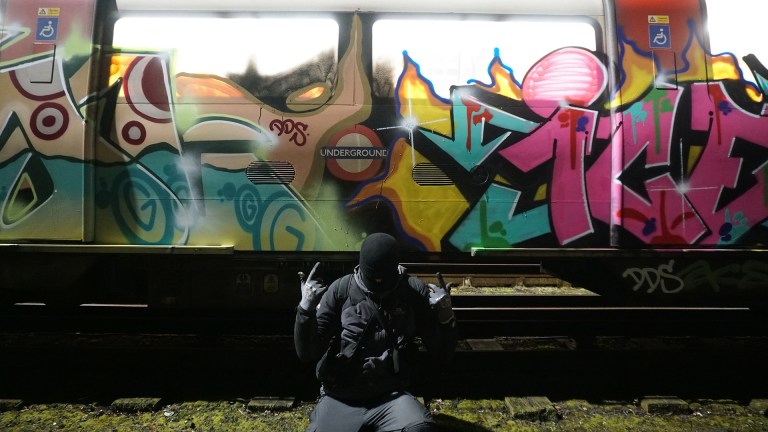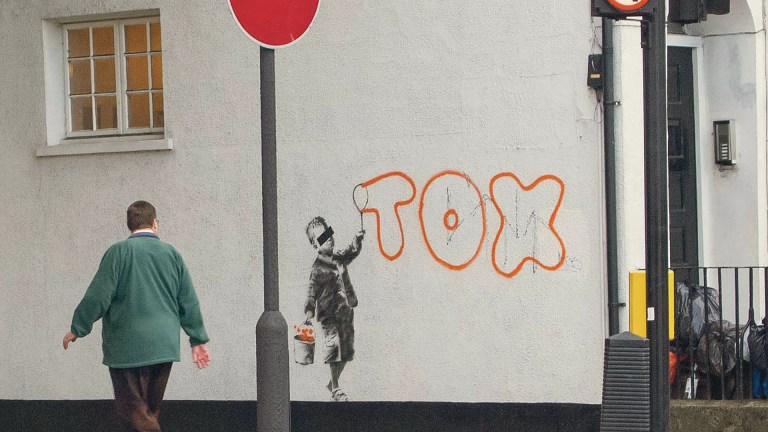Last year, Ukraine won Eurovision, following a groundswell of support for their entry in the face of the Russian invasion of the country. While Ukraine remains at war, the UK has stepped in to host the song contest on Ukraine’s behalf. In the host city of Liverpool, 24 artworks have been commissioned for a unique Eurofestival, a thought-provoking programme of art and culture. Among them is Ukrainian artist Katya Buchatska’s Izyum to Liverpool. She told us how the video installation will remind visitors of the escape many Ukrainians have taken since the full-scale Russian invasion began in February 2022.
Since Russia’s invasion last February, more than 20.9 million people have fled Ukraine, according to the latest UNHCR figures. But in March, Ukrainian artist Katya Buchatska returned to her homeland and travelled to Izyum, the closest city to the Russian border still accessible by rail. It then took her two days to reach Mostyska, near the Polish border, via her home city of Kyiv, during which time she and her crew filmed their journey. The result is Izyum to Liverpool, a video installation displayed in Liverpool Anglican Cathedral across two rows of six screens, evoking the familiar experience of train travel. Among mundane landscapes, though, are small but poignant reminders of the conflict: ruined buildings; lone travellers; abandoned children’s toys.
“The idea came to me when I was in a train, looking at the landscapes outside, and I saw this hammer near with a sign that said in an emergency, you need to break the window and go outside, and I realised that I could not go outside any more because that’s dangerous too,” Buchatska explains. “Those changes are sometimes not visible – you sometimes still look out at the normal landscape. That was the starting point for this piece.”
Your support changes lives. Find out how you can help us help more people by signing up for a subscription
An Orthodox Christian, Katya Buchatska feels that the exhibition space befits the themes of the installation, emphasising commonalities between refugees fleeing Ukraine and the biblical exodus. As she notes, though, “the exodus was because people wanted to reach their own country. For us, it’s because we needed to be evacuated from our home.”
The Very Reverend Dr Sue Jones, Dean of Liverpool, adds that the installation also invites “conversation about being in exile, which of course is biblical as well – where you’re in exile for a number of years and then you come back to your homeland.
